|
Ejaculate Responsibly Campaign A pro-choice AND pro-life male accountability campaign Spring 2024 When your bodily fluids have the potential to cause harm (such as unwanted pregnancy and/or exposure to STIs), you must be ethical, intentional, and accountable for your sexual decisions and ejaculation. “Men mostly run our government. Men mostly make the laws... if men were actually interested in reducing abortion, it didn’t need to take fifty years [after the fall of Roe v. Wade]. At any point, men could have eliminated elective abortions in a very short amount of time—a matter of weeks—without ever touching an abortion law, without legislating about women’s bodies, without even mentioning women. All men had to do was ejaculate responsibly. They chose not to. Today, they continue to choose not to” (Blair, 117). What inspired this campaign? February 14—March 24, 2024 is the nation's largest anti-abortion campaign: 40 Days for Life. The Women’s Center’s Ejaculate Responsibly campaign (a poster series with twelve unique messages) is an invitation to think differently about abortion, sexual politics, and accountability. This awareness campaign is inspired by Gabrielle Blair’s (2022) book, Ejaculate Responsibly: A Whole New Way to Think About Abortion. The purpose of this campaign is to provoke deeper interrogation of the pro-life/pro-choice dichotomy, which is a division or contrast between two things that are or are represented as being opposed or entirely different. Using Blair’s framework, we aim to bring a fresh perspective through awareness and attention to men’s choices and their primary role in causing unintended pregnancies. Knowing this, how can we change it? Ending unintended pregnancies and abortion is simple!
Men are responsible for their own sperm—they choose where it is placed. Men must be ethical, intentional, and accountable for potential harm caused by their sexual decisions and ejaculation (whether causing pregnancy or infecting a partner with STIs). The choice to prioritize one’s own desires/pleasure at the expense of others is an example of entitlement rooted in power inequality and privilege. Unfortunately, this is rarely discussed. There are many reasons for this, mainly that “our society is set up to protect men from the consequences of their own actions” (109). How have men’s choices impacted women? Historically and today, we live in a patriarchy. A patriarchy promotes and centers male/masculine privilege and maintains systems in which most positions of power, authority, and control are dominated by men. Putting the burden of all sexual and reproductive responsibility on women is a form of male privilege and sexism. While men have the most control and choice in the context of sex, it is women’s choices and bodies are endlessly critiqued, controlled, punished, and shamed. Despite how patriarchy naturalizes (“this is just the way things are”) women being over-responsible and men being under-accountable, women are never responsible for men’s behavior. Men are responsible for their own choices, behavior, and bodily fluids. Men have the most control and choice in the context of sex by:
Pregnancy Concerns
These differences matter and impact women’s lives long-term, especially in the context of our social and economic systems that have been set up to intentionally pay women less and/or not be compensated for their labor at all. Gender Violence Impacts In addition, the prevalence of men’s sexual and relationship violence are significant factors that take away the reproductive choices of women.
Conclusion People of all sexual orientations and genders who want to have sex can have wonderful, fulfilling sex lives without causing pregnancy. There are many ways to experience sexual pleasure without the risk of pregnancy: masturbation, using hands/fingers/mouth/tongue to stimulate your partner, using sex toys, or only having sex with people who are unable to cause pregnancy. Abstinence is also a great option for some. After all, let’s be clear: no one is entitled to sex, ever. Responsible ejaculation is both a pro-choice AND pro-life solution that is not rooted in controlling, coercing, or forcing women to give birth. This solution places responsibility where responsibility belongs: it is men’s responsibility to ensure they don’t impregnate. Men must take personal responsibility for their own sperm. We need to raise the bar for men. We share these messages because:
We believe in men’s ability to make safe, thoughtful, and equitable choices that respect women. We believe men can and must ejaculate responsibly. [1] Binary language is used for the purpose of conciseness. When we reference men we are referring to cis men, people who have sperm, and people assigned male at birth (AMAB). When referencing women we are referring to cis women, people who have the capacity for pregnancy, and people who are assigned female at birth (AFAB).
0 Comments
A statement I wrote for our campus program below (the Center's name has been removed): Statement on Victim-blaming and Accountability for Patriarchal ViolenceFeminist analysis of patriarchal violence[1] recognizes violence as a functional tool of oppression (e.g., a dominant group forces submission of a subordinate group, particularly through an illusion of consent or when non-obvious coercive routes are exhausted).
Sexual violence, and all forms of gender and power-based abuse, are forms of political and social oppression that are not the result of an individual survivor’s choices, ontology, identity, vulnerability, character, or reputation. [The Center] uses, and is not opposed to, risk-reduction[2] as a general concept, idea, or strategy. The [Center] does employ some risk and harm-reduction strategies (e.g., education on egalitarian/ethical relationships and sexual consent and communication). However, many common risk-reduction strategies perpetuate oppressive belief systems rooted in sexism, heterosexism, colonialism, white supremacy, neoliberalism, etc. Many common risk-reduction tactics and “safety tips” directed at systematically subordinated groups are only marginally applicable in more rare, stranger-perpetrated sexual assault cases. These tactics often perpetuate inaccurate, sensationalized, and narrow stereotypes of sexual violence that do not capture the broad scope of the issue. Most sexual violence is committed by a person the victim knows and trusts (dates, partners, spouses, friends, co-workers, classmates), as well as authority figures, people of high status, and “helping” professionals in which the public often trusts (clergy, police and criminal/legal professionals, mental health professionals, educational professionals, coaches, supervisors, medical providers, politicians, military, celebrities, etc.) The [Center] is committed to working within our community to change the institutions, systems, and broader culture and politics that normalize violence. We want to invest in ending the harm, not change or constrain the liberty, movement, and behavior of survivors/the people harmed by those systems. We focus our efforts on primary prevention—this means uprooting systems of oppression, stopping violence before it starts, preventing perpetration, and building long-term solutions that address the fundamental causes of violence. In order to eradicate violence, violence must be confronted at every scale (interpersonal, familial/household, community, institutional, systemic, state, and global) and not remain isolated to only the interpersonal. Our vision is not only to abolish patriarchal violence and rape culture, but to make patriarchal violence unimaginable. This also means we work to shift power in a concrete and material way, end dehumanization and sexual entitlement, and resist the belief systems that view human beings as objects to be possessed, commodified, and controlled (the ideological foundations that precede violence). At the [Center], we do not believe behavior-change on behalf of individuals will ultimately stop or prevent violence, because abuse and violence are always a choice by the person/group who cause the harm, not the responsibility of the person/people victimized by it. There is no guaranteed way to “protect” oneself against relationship violence, stalking, sexual harassment, exploitation, and/or trafficking. While there are no perfect victims, a person can do everything considered “right/cautious,” take every “safety precaution,” or implement every “risk-reduction” strategy, and still be violated and abused. A victim/survivor’s choices or character are irrelevant to an abuser’s choice to abuse (e.g., dress, drinking, flirting, who they hang out with, sexual decisions, “risky/dangerous situations/environments,” how they respond/resist sexism and violence, reporting decisions, or levels of personal vulnerability, assertiveness, self-esteem, and/or confidence). Vulnerability is not inherent to an individual but is intentionally created by systems of oppression and dominant groups to subordinate, marginalize, and target particular groups. Violence/abuse perpetrated against a person is never, regardless of the context, the fault or responsibility of the person victimized. Perpetrators are motivated to perpetrate for many reasons independent of the person they abuse. In addition, promoting individual changes to a potential victim’s behavior does not mean the abuser won’t abuse, it may mean the abuser abuses regardless, and/or they may choose to target a different person to abuse. Either way, the abuser usually continues abusing as they are socially rewarded and not held accountable. While our center works to educate and raise consciousness on ethical relationships and sexuality, education alone is not enough to protect someone from abuse, because they do not hold systemic power and are not in control of the abuse. For example, educating people of color on racism (what racism is, how to identify it, etc.) will not stop systemic racism. Educating disabled folks on ableism or queer folks on homophobia, transphobia, and heterosexism will not end it. Likewise, a victim/survivor’s knowledge and ability to identify abuse does not mean the victim, on their own, can prevent it or has the power to stop it. Victim-blaming messages directed at subordinated groups are used to distract the public from challenging the oppressive behavior of dominant groups. Cis women, femmes, people who experience/d feminine socialization, and other marginalized groups often internalize and have been lectured their whole lives to modify their behavior, dress, etc. to appease or de-escalate cis men and other dominant groups. [Our Center] is committed to not perpetuating these messages. This statement was written for accountability purposes and to share our [Center's] analysis of violence as an informational and educational tool. If you see our [Center] share any type of messaging through social media, presentations, awareness campaigns, advocacy, support services, etc. that conflicts with the analysis above in this statement, please contact [us] immediately. Your feedback and accountability is critical to us. Sincerely, Rebecca Kotz [1] “Patriarchal Violence (PV) is an interconnected system of institutions, practices, policies, beliefs, and behaviors that harm, undervalues, and terrorize girls, women, femme, intersex, gender non-conforming, LGBTQ, and other gender-oppressed people in our communities. PV is a widespread, normalized epidemic based on the domination, control, and colonizing of bodies, genders, and sexualities, happening in every community globally. PV is a global power structure and manifests on the systemic, institutional, interpersonal, and internalized level. It is rooted in interlocking systems of oppression.” – Black Feminist Future [2] Examples of common sexual assault risk-reduction (primarily with strangers) strategies: carrying pepper spray or weapons, “buddy systems,” not drinking, pouring your own drinks, not leaving drinks unattended, not going anywhere alone, not wearing clothing perceived by men as “sexy”, self-defense classes, carrying your keys in your hand, not wearing headphones/talking on a cell phone, avoiding elevators and stairs, avoiding poorly-lit areas, remaining alert/vigilant, etc. Though these tactics or behavior changes can create a feeling of safety, they ultimately will not prevent sexual violence. 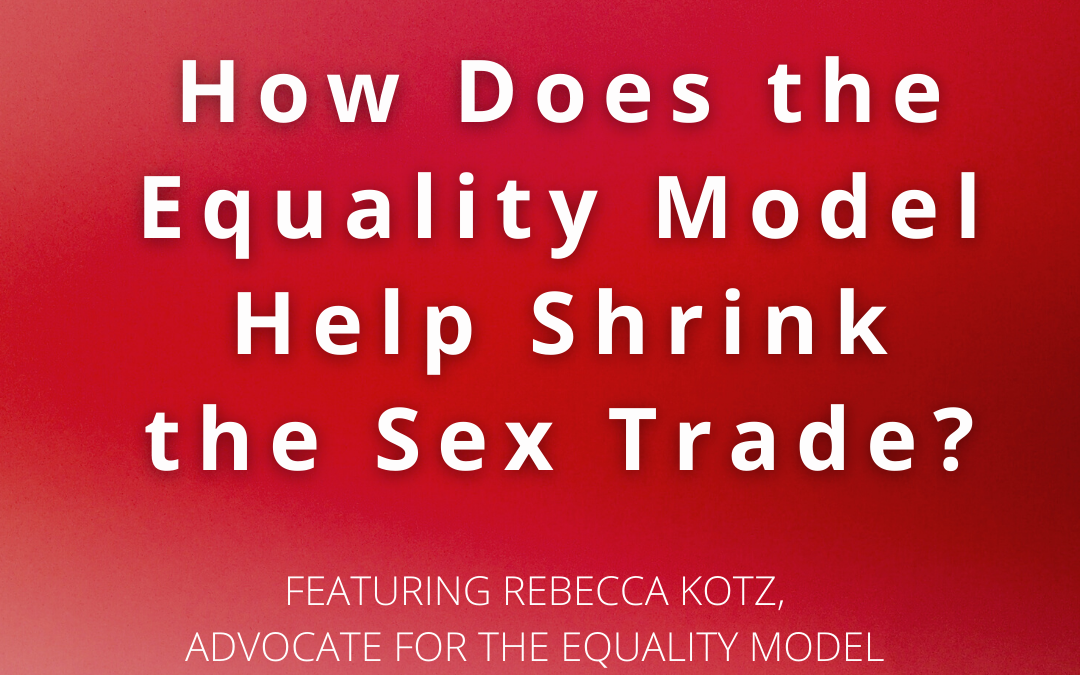 Our returning guest Rebecca Kotz unpacks The Equality model, which aims to partially decriminalize prostitution, “shrinking the sex trade” and a step forward in ending sexual exploitation. Rebecca says this goes beyond a policy change, but also involves identifying the ways victims are coerced into the sex trade and working to comprehensively cover those vulnerabilities. She shares the need for service providers to be trained well when working with victims as well and questions our reliance on the criminal/legal system as the primary path out of prostitution. She also explains how social norms also need to shift as a majority of victims of sex trafficking receive little understanding or support once they are considered an adult, and therefore considered responsible for their actions by the public at large. In addition, she shares the need to end the demand for prostitution and, more broadly, the normalization of sexual coercion, objectification, and commodification. If you’d like to learn more about the Equality Model, visit: www.equalitymodelus.org To learn about Minnesota’s campaign for partial decriminalization, Safe Harbor for All, visit: www.sh4all.org When attempting to understand what perpetuates such crimes as sexual abuse and exploitation, especially against women, we may only want to think of the individual players involved. But could we be missing a key component?
Our guest Rebecca Kotz asserts that if we want to see the tide of oppression change, we need to consider the deeply-entrenched systems in place which create ideal conditions for these crimes to happen in the first place. Rebecca has worked tirelessly to advocate for big-picture change in her home state of Minnesota, which has included creation and facilitation of Safe Harbor programming for adult and minor victims of sex trafficking in addition to a feminist-rooted accountability program for men convicted of soliciting prostituted/trafficked individuals. 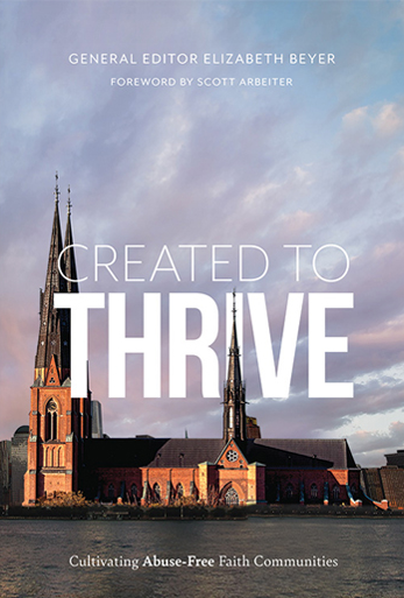 When I first heard CBE (Christian for Biblical Equality) International intended to compile and edit a book for faith communities on the topic of domestic/dating abuse and violence, I was excited, but more than anything, deeply relieved. Few organizations (faith-based AND secular orgs) have enough courage to confront the roots of violence. After a decade of working within the anti-violence movement, I remain frustrated with how rarely non-profits and educators name the problem: male socialization/masculinity under patriarchy, sexism, misogyny, colonialism, white supremacy, etc., Though I have trained and organized within faith communities for many years, most of my professional work has been in secular/non-faith-based organizations and agencies. As I look around at the approaches of anti-violence organizations, the growing trend within these organizations and movements is to dilute and de-politicize them completely from their feminist origins and analysis. Men's violence against women is a highly political issue. When I say "political," I don't mean partisan politics (e.g., Democrat/Republican or conservative/liberal). Instead, I am speaking about the analysis of power distribution, inequality, oppression, and the roots of social issues. Because nonprofits are in a position of needing to constantly beg for money, too many organizations purposefully avoid moving beyond the surface to appease foundations and the state agencies/grants that fund them. This often requires making complex social and political issues as palatable as possible to appeal to donors who can write big enough checks to sustain the work. It's a tricky and ethically questionable position to be in constantly... that is why I respect CBE’s honesty about the roots of violence. They are one of the rare organizations that choose not to separate abuse/violence from its ideological source: patriarchy, unequal power distribution, and toxic theology (CBE President Dr. Haddad's often-referenced line, "ideas have consequences"). These points are at the forefront of all their public analysis and messaging, not tucked away. I started writing for Created to Thrive: Cultivating Abuse-Free Faith Communities almost four years ago. So much has changed for me, and in the world, since then. Of course, my beliefs continue to evolve since I submitted this work. I have been in the midst of a religious "deconstruction" period for many years and remain highly critical of American Christianity and the Religious Right. Still, writing and contributing to this book felt like an important call for me, even while ambivalent about organizing in faith communities and recognizing the challenges, frustrations, and pain it can bring. I continue to believe doing feminist work in faith communities is necessary because I believe faith-based defenses of patriarchy are the number one reason why patriarchy maintains its stronghold. Nothing else matters to religious folks, including the harm their ideas and theology may inflict, if they genuinely believe they are "on god's side." We will never end sexual and domestic abuse until we can untangle and dismantle the theological beliefs that justify the sin of patriarchal violence: 1. the obsessive religious lust for power and control 2. the fundamental belief in male dominance/female subordination as the will of God. In Created to Thrive, I explore the impact of patriarchal beliefs on our sexuality and the pervasive reality of sexual violence in intimate relationships. I have written two chapters in this book: one on sexual violence by intimate partners, the other on healthy sexuality and consent. Created to Thrive highlights how the patriarchal sin of men’s violence against women has robbed us of the beauty of healthy, healing, and enriching egalitarian relationships—and how we can take back what sexist politics and theology has stolen from us. Sexual violence is one of the most common forms of abuse in marriage, the most normalized, and the least discussed in church. For too long, faith communities have sent messages that anything sexual within the marriage is acceptable, including sexual domination and coercion. I wrote these chapters to bring to light a still-taboo topic and re-imagine a new path toward true sexual ethics and intimate justice. I believe the last few years of socio-political crises have catapulted a significant consciousness-raising/reflective awakening period for the Christian community. I think this book is timely as a new era of Christ-followers emerge and hunger for more: those willing to tear down tradition, institutions and dogma for a more authentic faith, those willing to re-envision safety, push for accountability, and engage in the persistent, long-term fight that justice requires. So, all that to say, I’m excited for the debut of this resource. I hope you share it with your faith communities and Christian friends! Order the book HERE 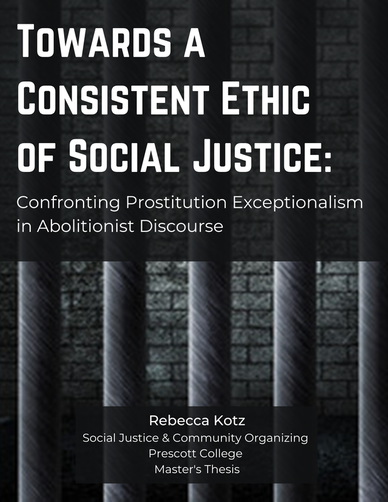 Social Justice & Community Organizing Master's Thesis Abstract (c) Rebecca Kotz | May 9, 2021 Please contact me if you are interested in reading and/or providing feedback on this thesis! Please e-mail me at [email protected] Abstract Are [prison] abolitionists committed to ending all forms of oppression, or do exceptions for sexual exploitation exist? This thesis uses radical feminist, anti-neoliberal, neo-Marxist, and anti-violence movement analysis to examine and confront the ideological contradictions in prison abolition discourse. Though abolitionist discourse promotes revolutionary, anti-capitalist principles, it adopts neoliberal “sex work” ideology that reinforces objectification, commodification, and the globalization of the prostitution industrial complex. Abolitionist discourse recognizes the multiplicity of harm and enslavement but supports a false consent/coercion binary that ignores the entrapment and less visible cages within the sex trade. While claiming to envision transformative justice, abolitionist discourse pivots to prostitution reformism and tolerance of sexual exploitation. Finally, abolitionist discourse analyzes how spectacles of violence create public support for prison expansion yet does not consider how pornography acts as similar propaganda that normalizes sexualized dominance and sadism. The significance of these findings affirms the essential need of the prostitution and prison abolition movements to join forces to end interpersonal and state-sanctioned patriarchal violence to advance a consistent ethic of social justice at every scale. This was a short piece I was asked to write for a Catholic Charities newsletter in the aftermath of many clergy-perpetrated sexual abuse cases in the diocese. There is so much more I wanted to say (and scream), but this was meant to be a brief "101" and gentle challenge to church communities to examine bias and stereotypes about abusers, offer a possible explanation as to why people may react in harmful and victim-blaming ways, and confront the cost of prioritizing our own comfort over the safety, healing, validation, and support of those who have been abused. Have you ever heard someone say, “they weren’t who I thought they were…”? This is an example statement of someone expressing a feeling of betrayal. Unfortunately, betrayal is common in human relationships, as we all can hurt and be hurt in big ways and small. However, betrayal can sometimes have such a profound effect on a person that they experience life-altering trauma and post-traumatic stress symptoms. “Betrayal trauma” is a psychological concept originated by Jennifer Freyd in 1994. Betrayal trauma can occur when a person or institution we depend on for survival, support, or are significantly attached to, critically violates our trust or well-being. This violation of trust can happen on both a micro/individual level and a macro/institutional/ systemic level. Abuse by a parent, partner, family member, caregiver, spiritual leader, a “caring/helping” professional, or systemic/institutional failures can shatter a person’s worldview and sense of safety. When you put your trust in someone/something, and they become the agent of hurt, pain, trauma, and abuse, you can question deeply held beliefs about the goodness of people. This questioning is a normal reaction and a way our body and brain work to protect us. The rampant sexual abuse crisis in the church (and so many institutions) is likely to cause betrayal trauma. Could we have experienced betrayal trauma from the church, but never recognized it as such? People make sense of betrayal in varying ways. Betrayal trauma may manifest as questioning the validity, integrity, truth, or faith in the church and God, especially when we are told that religious leaders represent or embody God. If clergy cannot be trusted, can God be trusted? If even the church can’t be trusted, where can my family and I be safe? These may be frightening and unsettling questions, but they are also important questions that lead to more honest assessment and much-needed accountability if we are serious about creating a safe church for victims/survivors and holding abusers accountable. We can do both; we must do both. Jesus didn’t shy away from hard questions or preaching difficult truths. He radically challenged religious leaders and the comfortable status quo with empathy, grace, strength, conviction, and truth. Jesus did not remain neutral or “wait for all the facts”—he consistently sided with the marginalized every time. Although Jesus affirmed that all human beings matter and have inherent worth and dignity—he focused most of his time specifically on those whose lives were deemed least worthy in society. Instead, he centered on those deemed in society as “the least” in his work and ministry—the poor, immigrant, widowed, prostituted, oppressed, sick, incarcerated, and outcast. Jesus, a man of color, was not lynched for sharing messages of peace and love. He was crucified by law enforcers for many reasons, but one was certainly his prophetic disruption of “business as usual” and his rebellious solidarity with the oppressed. It is normal to have mixed emotions after a shocking discovery. You may know an abusive person—but still believe they are good, recognize the incredible gifts they may have to share with the world, remember how they showed kindness to you, appeared to be a “man/woman of God,” or you may have trouble believing that the person you know could be capable of causing such hurt, pain, and trauma towards others. Social norms and media play a significant role in skewing our perceptions and generating inaccurate stereotypes of abusers as easily identifiable people. This often leads us to overlook those in our own lives and prevents us from looking inward to see our own complicity and some of the unhealthy, manipulative, or abusive behavior we may have perpetrated ourselves. Instead of allowing new information about people and institutions to shift our beliefs, even disrupting our worldview, reputation, or perception of another, we tend to deny that new information. We tell ourselves: this can’t possibly be true. Although denial is often used to give us a false and temporary sense of protection or comfort, Christ following, peace-making, and justice demands us to be uncomfortable. Holding the tension of mixed views/emotions can be difficult. Human beings are far more complex than the neat boxes we try to force them in. All people have goodness and redeeming qualities. People who abuse are not monsters. They are people just like you and me. Black-and-white binary thinking is common—we tend to label people as either “good” or “bad.” Binary thinking can have detrimental effects. Suppose we cannot hold this tension and accept that sometimes people are not who we thought they were, have different “sides” we don’t see, or that someone we like/love is capable of abuse. In that case, we tend to shift blame from the perpetrator (who is responsible for the abuse) to the victim (who is not responsible for the abuse perpetrated against them). As a society, we have found it easier to punish victims who speak out or other messengers of painful truths, instead of directing our anger at the source of the problem. This response to victims can cause severe, compounding harm, and additional trauma. Shifting blame onto the victim is especially devastating in a church setting or with other religious/spiritual people, where people often expect support and healing and instead feel abandoned. Instead, sometimes betrayal trauma looks like invalidating the righteous anger of the victim. It looks like siding with the perpetrator. It looks like blind loyalty to abusive people and institutions. We deny, minimize, trivialize, justify, dismiss, or even excuse the gravity of abuse. This is particularly common when the priest or clergy member abuses an adult. Adult victims of abuse are far more likely to be held responsible for the abuse perpetrated against them. Sexual abuse against adults, which involves a spiritual leader or counselor engaging in any sexual activity with a person in the congregation or who is receiving counseling (regardless of any appearance of consent) is always an abuse of power. This is not a misunderstanding, mistake, miscommunication, affair, inappropriate relationship, or an overwhelming temptation. It is a deliberate pattern of behavior chosen by the abuser. A more powerful person takes advantage of a less powerful person, often in a state of vulnerability. The clergy member is often a beloved person of status, respect, and moral authority in the community. The abuse is often additionally spiritualized as the religious leader uses scripture or theology to manipulate the victim into doing what he wants. It is critical that we hold abusers accountable, regardless of our personal feelings and experiences with that person. Accountability is the best thing that can happen to an abuser—it interrupts their destructive choices, brings the harmful behavior to the light, and provides an additional opportunity for change. Betrayal Trauma and accountability are something, as a church, we must do the hard work to confront— to reckon with, reflect on, but most importantly—push for change and real accountability. No one is above accountability. Sometimes we are so obsessed with preserving and defending our worldview, the church, and our beliefs, that we become incapable of thinking critically. Human beings with power, status, moral prestige (paired with lack of accountability) are those that are most likely to abuse, not least likely. As a person gains power, too often, they feel more entitled to the use of others and know their positive reputation will protect them. Abusers groom not only the victim; they often groom the entire community. We must end the worship of flawed human beings and institutions and refuse to accept the illusion that they can do no wrong. From a Christian theological standpoint, Jesus was the only perfect person—no other human being or institution deserves worship. When we put people and institutions on a pedestal, we far too easily become blindly loyal and avert our eyes to the blatant abuses and pain in front of us. As a church, we can heal or harm—which path will we choose going forward? 200+ prostitution buyers convicted in central Minnesota. Most men are never caught. Exploiters are... our brothers, husbands, sons, athletes, clergy, police, military, educators, co-workers, business owners, classmates, public officials, our president... 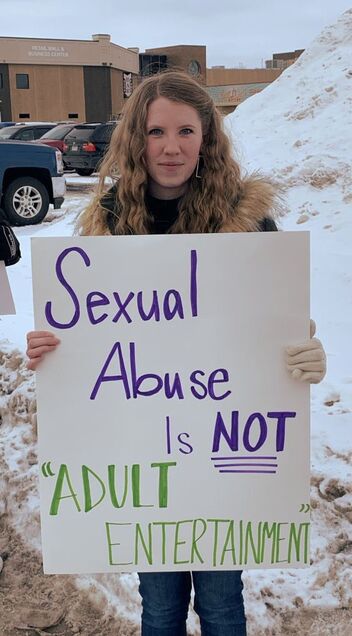 Rally speech from the Stop Traffick: End Demand 2020 Demonstration held in Saint Cloud, Minnesota on January 25th, 2020. "We have made some amazing progress in the past ten years thanks to the tireless work of victim/survivors, advocates, and activists throughout the state, country, and across the globe. In this new decade, we are moving the conversation forward. By now, many have recognized that anyone can been sexually exploited or trafficked. On the other hand, how many of us have truly considered that anyone can be an exploiter, rapist, abuser, or trafficker? That people we know, people we love and respect, even people who claim to be allies to women and survivors, are capable of this? Today we honor January’s Human Trafficking Awareness Month with renewed commitment to bold anti-violence activism with a strong message centered on promoting male accountability and systemic change against patriarchal, sexist oppression. During the planning process for this event, we wanted to be intentional about how this message was framed today. No one would say they are PRO-exploitation/trafficking. However, what we’ve learned as we’ve done education in the community—is that once we get into the details, once we talk about what sexual exploitation encompasses—who is doing it, where they are doing it, and why they are doing it--suddenly people want to draw lines, debate the exploited person's “choices,” and discuss the so-called “nuances” of the issues. These are all excuses to do nothing. We need to take a closer look at men’s choices: 1 in 5 U.S. men self-report buying a human being for prostituted sex. At least 75% of men use porn at least once a month. Men’s use of strip clubs is also normalized where men bond over sexual objectification. This is even seen as a “rite of passage” for young men's birthdays and bachelor parties. What often happens when we talk about power-based abuse and violence is that we don’t name the source of the problem. We have been conditioned to submit and to protect the very individuals, institutions, and systems responsible for oppressing and exploiting us. We’re not doing that anymore. Male violence is not an accident or a misunderstanding. We need to stop treating male violence as if it is an unfortunate natural disaster that "just happens." It’s a conscious choice. It’s a functional act—both personal and political—to terrorize and subordinate women and children. As feminists have been saying for decades, "prostitution is the world's oldest form of patriarchal oppression." The irony of all this is that the dominant groups and oppressors (particularly men, white people, and the rich) are always centered in our culture… except when they do bad things. Then, they suddenly become conveniently invisible and people get uncomfortable when they are named. We need to lean into the discomfort. Choosing comfort over justice is why people in power get away with the atrocities they do. Today, we are naming the problem and we are naming the solution: it’s men. This is also not an issue that arises from isolated individuals. Patriarchy, sexism, racism, white privilege, capitalism, classism, militarism, colonialism, heterosexism, and ableism culminate into a sadistic industry controlled by men, demanded by men, and profited to men. The bar for men right now is insultingly low. And we need to raise it. When people talk about men’s use of women in prostitution, porn, and strip clubs, we no longer will say “boys will be boys.” We say boys and men will be held accountable. We expect men of integrity. We need men to stand alongside us, not sit back and remain silent. We expect men refuse to use sex as a tool to violate, conquer, control, or commodify us. We expect men and boys to treat women and girls, and all people, with respect, equality, dignity, safety, and mutuality. We expect men to make choices to give up their advantages and entitlements to work towards our collective liberation. And we’re not going to beg for it or offer trophies for decency. We have the power to relearn and teach these beliefs and build a different world. That kind of world is one worth fighting for and it is in our hands. Sexual exploitation is not inevitable, it is preventable—but as Frederick Douglass said, “power concedes nothing without demand,” which is why we are here today. We are demanding an END to sexual exploitation—once and for all." 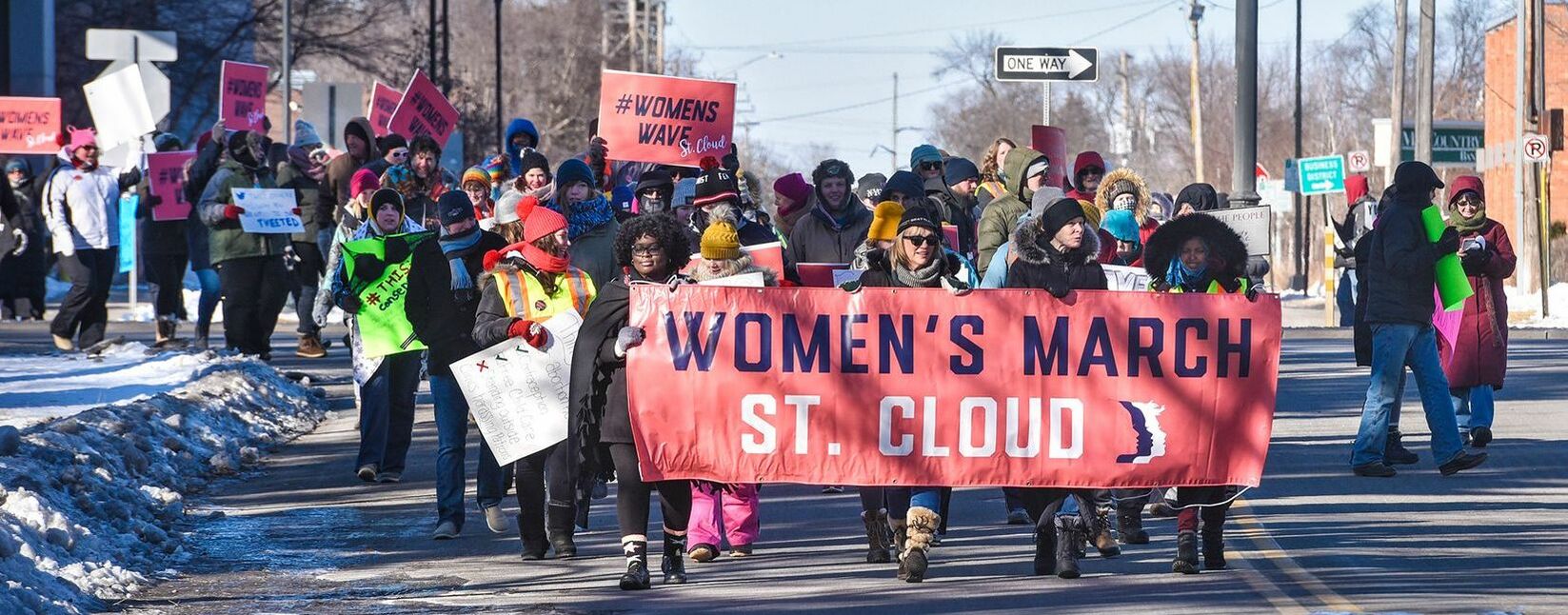 Photo from St. Cloud Times https://www.sctimes.com/media/cinematic/gallery/2626964002/cold-temperatures-dont-stop-womenswave-marchers-in-st-cloud/ Photo from St. Cloud Times https://www.sctimes.com/media/cinematic/gallery/2626964002/cold-temperatures-dont-stop-womenswave-marchers-in-st-cloud/ I was asked to speak about sex trafficking at the St. Cloud, Minnesota #WomensWave March on 1/19/19. Here's a little background/all the things I couldn't say in the speech: In a large audience of mostly progressive women and men, I did not want to waste a precious and extremely brief, three-minute platform, to talk about an issue as uncontroversial as sex trafficking. Everyone in that audience would agree this is a terrible injustice. However, I wanted to challenge what I felt the audience might not agree on- commercial sexual exploitation/prostitution, or what some in this crowd would call "sex work." Though there are some beliefs within the "sex worker's rights" platform that I do agree with, their fundamental premises I cannot. I don't believe prostitution is "work" like any other, I don't believe "stigma" is what causes additional violence to prostituted people (what causes violence are the actual agents of violence- almost always male buyers and traffickers), I don't believe paid coercion can ever be consent, I don't believe prostitution can ever be non-exploitative, and I don't believe in harm-reduction-only "solutions." I want to make clear that these statements I've made do not stem from a distanced and detached academic analysis. My views have been carefully developed through years of direct experience working with survivors of the sex industry, prostitution, and trafficking, from facilitating a male offenders program, and from the wisdom of many survivor-activists and feminists who know this issue inside-and-out because they have lived it. At our advocacy center, we use the empowerment model. We do not support paternalistic practices. We do not claim to "rescue" people or ever use such language. If there is any "rescuing" going on, it is our clients who rescue themselves. They are their own s/heroes. Any professional that takes credit for a survivor leaving the life has a savior complex that needs to be addressed. But as much as SWRAs claim all professionals in the field are like this, that is simply not true. (But quick PSA to faith communities: please stop doing this!) We do employ harm-reduction approaches (e.g., safety planning and handing out condoms and lube), while also fighting for the total abolition of the sex trade. That is because we are not defeatist. We do not believe so little of men that they will forever use women's bodies as masturbation fodder. We will not enable bad behavior by men and agree that "boys will be boys." We will not respond with a shrug and say, "Oh well, sexual abuse has existed for a long time, so we just have to accept it, maybe make sexual violence a little less violent, and move on." No. That is unacceptable. We are either massively burned out or in the wrong line of work if that is our response to sexual abuse in any form. However, sometimes grief and hopelessness in social justice work "boxes us in" and limits our capacity to creatively envision a world outside of what we see in front of us. When it comes to these issues, it does not have to be one or the other (e.g., harm-reduction or abolition, shame everyone in the sex industry or shame no one). As an agency, we advocate and emotionally support all people in the sex trade, regardless of where they are at, regardless of if they plan to stay or plan to leave... while still critiquing and working to abolish the sex industry/trade that exploits them. Yes, you can do both. Shame and judgment have historically been reserved towards the exploited, prostituted, and trafficked- but this is victim-blaming, wrong, and 100% misplaced. Those who are prostituted should never be judged or shamed. The blame rightfully belongs on the exploiters who made the choice to exploit. The buyers (rapists) and traffickers (facilitators and profiteers of mass gang rape) have remained invisible and unaccountable for too long. Times up. So with all that background, here's what I said... (Intro, name, agency, etc.) Many of us here know that sexual exploitation is a serious issue and is happening in our community. CMSAC serves close to 100 victims of exploitation/trafficking each year, and the number of people we serve only scratches the surface. No one would argue that trafficking is acceptable, and that’s why we need to talk more about prostitution and pornography, which is what traffickers make their victims do. Society often sugarcoats the reality in which a person in prostitution lives. Regardless of if she has a trafficker or not, whether she was groomed through sexual abuse or groomed by a misogynist culture, whether she is sold on the streets or sold in the nicest hotel room, whether she is paid $1 or $1000… A fancier environment and all the money in the world does not erase the trauma of being used as a sex object. Prostitution takes place when entitled, mostly white, men bribe access to women’s bodies, especially Black, Native, and other women of color. He pays her to do what he wants, when he wants it, how he wants it. He pays to control her dress, her speech, and her body. All coerced sex, including sex coerced by inequality, survival, or financial struggle, is sexual assault- a violation of human rights. In 2019 and in the #MeToo Era, this should no longer be up for debate. Agencies like the Central MN Sexual Assault Center and Terebinth Refuge that work with victim/survivors of the sex trade on a daily basis, we do whatever we can to support, advocate, and help strategize with them to reduce harm in whatever small way we can- because some survivors don’t see a way out, some don’t have the resources to leave even when they desperately want to, and some traffickers have convinced them that this is the only thing they are good for. We are privileged to be able to march today. Many women can’t. They’ve been murdered, battered, violated, silenced, and terrorized. We as feminists can honor these women by speaking up in solidarity and telling the truth even when it’s not comfortable or popular: prostitution is not a “choice” that women enthusiastically make, porn is filmed violence no matter how much people like using it, the enormity of sex trafficking is not a surprise when men feel sex is a right they are owed… and in a world where rapists and batterers almost always walk free. Prostitution is not a “job.” This is not paid “work” - it is paid rape and we need to stop adopting euphemisms to make the systematic sexual assault against women more palatable. If you believe women’s lives are important enough to work to abolish these exploitative industries once and for all, I ask you to join CMSAC to end it. Advocate with us for survivors, take power away from the pimps, and change the systems that normalize abuse and sexism. Womanist sister, Audre Lorde, said, “I am not free while any woman is unfree, even when her shackles are very different from my own.” Thank you. 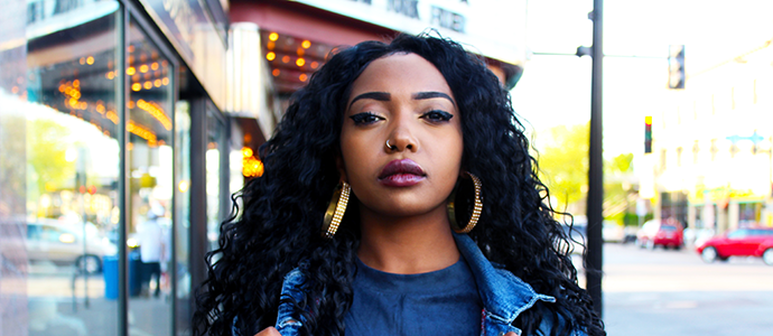 *See original article on CBE International's blog HERE* At the beginning of 2017, I wrote a blog calling women to speak out and use our voices like never before. And did we ever! 2017 began with the largest single-day protest in US history: The Women’s March. As the year progressed, women of all political, religious, racial, and socio-economic backgrounds broke their silence about their experiences with sexual assault and harassment. And because of their courage, many powerful and influential men who were once untouchable are now being held accountable. The year culminated with TIME magazine deeming “The Silence Breakers” their “Person(s) of the Year” and Webster Dictionary announcing “feminism” as their top-searched term and 2017 “Word of the Year.” Women persisted in 2017. Women resisted. Women were loud. Women were bold. Women were brave. Women put everything on the line—status, careers, relationships, and safety—to fight for their rights and the rights of their sisters. And against all odds, women prevailed. And yet, for many of these brave women, each new story of sexual harassment, abuse, and assault was triggering. Every show of support or defense of perpetrators in 2017 was an insult to women. The denial of women’s stories—in public and private—was one more crime piled on top of the abuse, harassment, and violence we’d already endured. And when sexist/abusive men got away with hurting women and either retained or gained power, it was another jab at an already raw and open wound. Despite the pain and pushback, women pressed on to tell the truth. Society has now reached a point of no return. The visibility of men’s patriarchal power and violence was in our faces (almost daily) this year in the news. After the initial “shock,” many recognized that men they admire and respect are just as capable of abusing their power as men they don’t. Thanks in large part to the women’s rights movement, public awareness of these realities has increased in the last forty years. In the age of the internet, anyone can access the ingenious analysis of feminist writers and theologians and read survivors’ personal accounts. And now that we have arrived at this reckoning, we have an opportunity to think critically about what we can do differently in 2018. In that vein, I have two questions as we begin this new year. 1. How should we support survivors in 2018? We should not ask women to share and relive agonizing and humiliating experiences over and over—so that we might be convinced of their truthfulness and jarred awake from our social apathy. We have heard the stories now; we can no longer plead ignorance. “We didn’t know” is no longer a defense for systemic, institutional, and personal inaction against sexism and abuse. We can’t ask survivors to reopen their wounds in the public sphere again and again—to bleed out their most painful, vulnerable, and traumatic experiences—whenever we need to be stirred to action. It is our job as allies to remember and to help carry the burden. It is not a survivor’s job to re-engage us. Often, instead of holding survivors close and supporting them, we distance ourselves and/or minimize or deny their experiences. We often tell survivors to “move on” or “forgive and forget” simply because we can’t take the discomfort. Judith Herman writes: "It is very tempting to take the side of the perpetrator. All the perpetrator asks is that the bystander do nothing. He appeals to the universal desire to see, hear, and speak no evil... In order to escape accountability for his crimes, the perpetrator does everything in his power to promote forgetting." Secrecy and silence are the perpetrator’s first line of defense. If secrecy fails, the perpetrator attacks the credibility of his victim. If he cannot silence her absolutely, he tries to make sure that no one listens.[1] In 2018, we need to send a strong message to survivors: We see you. We believe you. We will support you. And we will respond. 2. How can we defy patriarchy’s attempts to exhaust and silence us in 2018? Awareness is meaningless without action. We are all responsible for demanding accountability and collectively fighting patriarchy, sexism, and abuse. We can and should rejoice in every smidgen of progress, every advancement, and every victory. But we can’t afford to grow complacent when the war is far from over. Oppressors rely on the surrender of those they subordinate. They count on the oppressed growing tired, apathetic, complicit, or even satisfied. For this very reason, we cannot fool ourselves into thinking gains are permanent and can't be taken away. Our victories were not given to us as “gifts” by men in power. Women before us were jailed, beaten, punished, and killed so that we might be free. And women today are still fighting and struggling for their rights and lives. Patriarchy may take new forms, but the oppression and the system that executes it remain the same. Cynthia Enloe describes patriarchy’s strategic and creative revival as “stubborn” and “stunningly adaptable.”[2] Oppressive systems survive through constant reinvention. We must always be on our guard to address patriarchy's next manifestation. And, with all progress comes opposition. The oppressors have punished the resisters in every major human rights movement in history. In the words of Susan Faludi, “The anti-feminism backlash has been set off not by women's achievement of full equality but by the increased possibility that they might win it. It is a preemptive strike that stops women long before they reach the finishing line.” It makes sense that patriarchy would punish women for fighting back. It’s predictable that patriarchy would attempt to push women “back in their place” by retaliating against us; silencing us; and attempting to exhaust us. But we cannot be stopped. We have a spiritual and moral responsibility to dismantle patriarchy and build a world where women are safe, respected, and treated with dignity. We know our enemy well by now. We will not allow it to deter, silence, or exhaust us in 2018. We persisted in 2017. We will persist again. “Let us not become weary in doing good, for at the proper time we will reap a harvest if we do not give up” (Galatians 6:9). Notes [1] Judith Herman, Trauma and Recovery: The aftermath of violence- from domestic abuse to political terror (New York: Basic Books, 1997), 7-8. [2] Cynthia Enloe, “The persistence of patriarchy” New Internationalist, October 1, 2017. Accessed December 20, 2016. https://newint.org/columns/essays/2017/10/01/patriarchy-persistence. |
Categories
All
Archives
March 2024
|
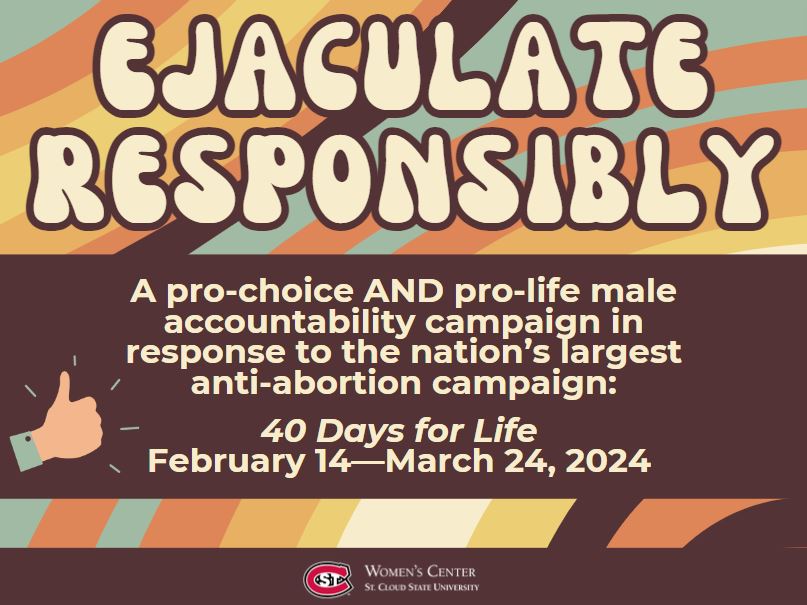












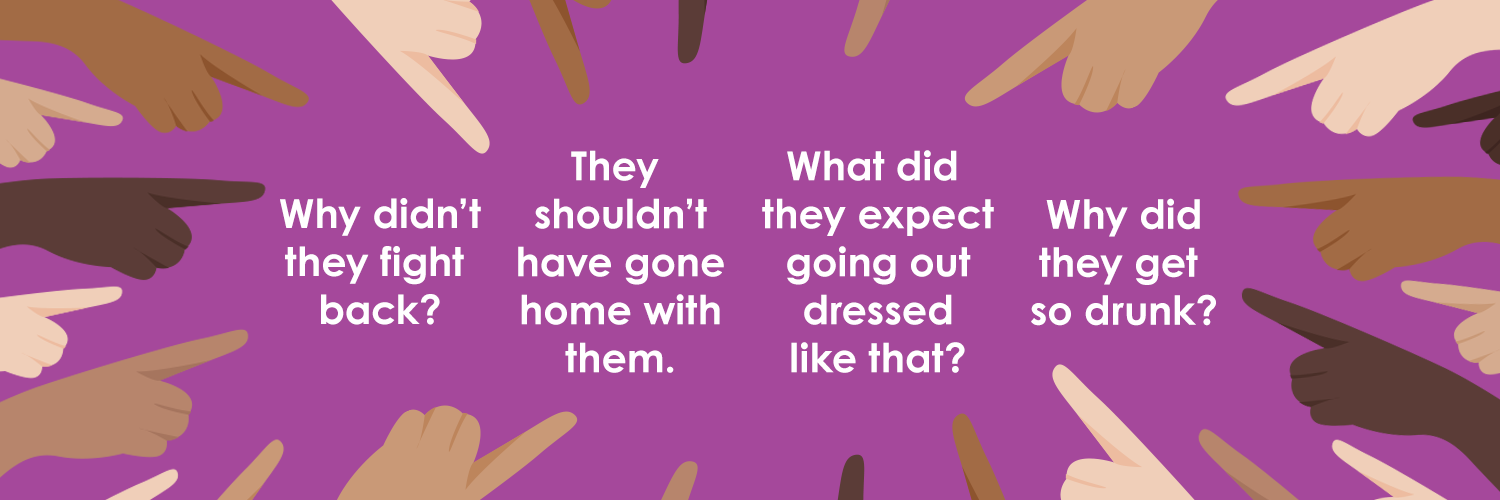
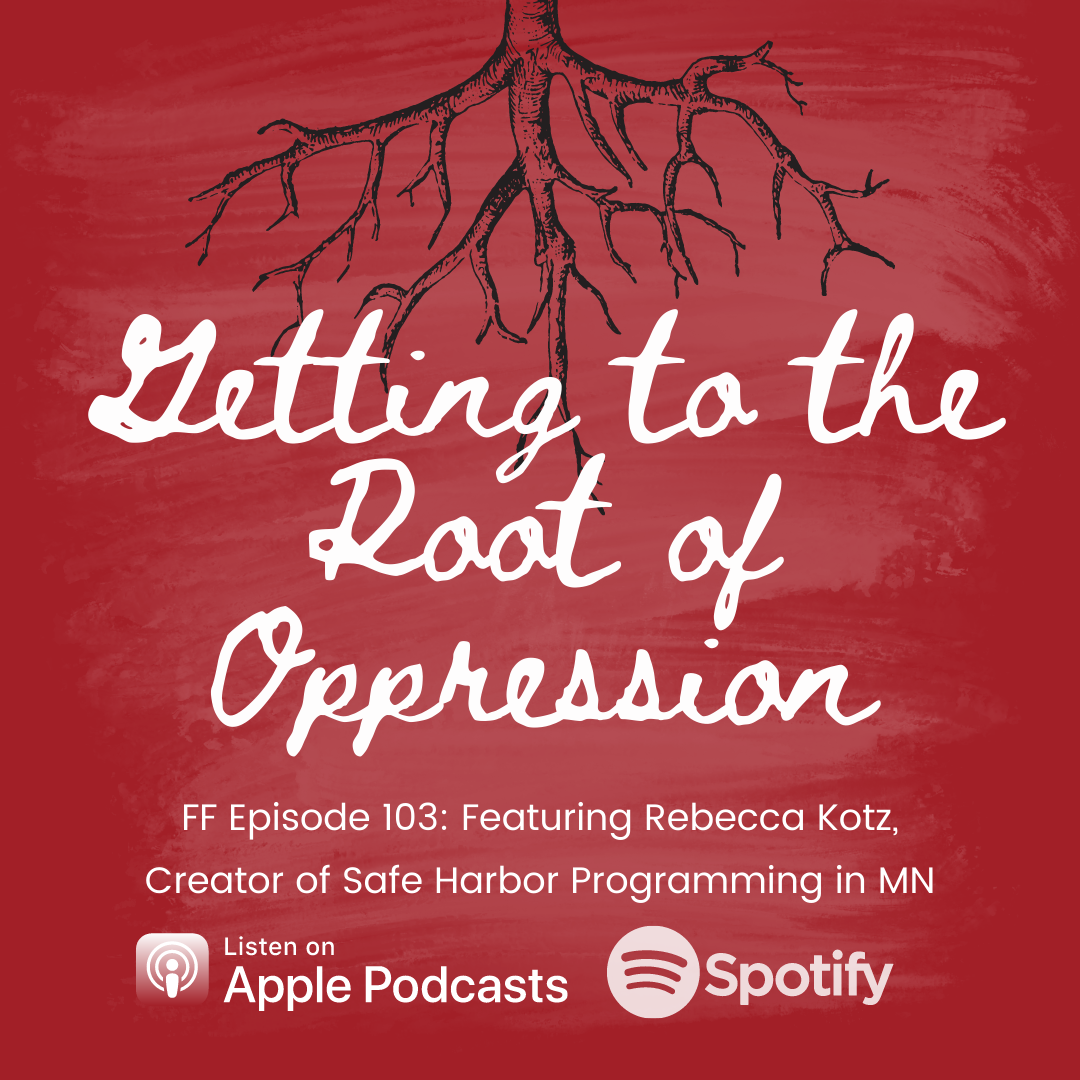

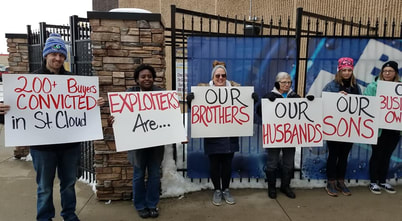
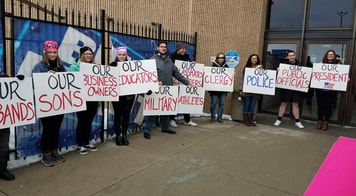
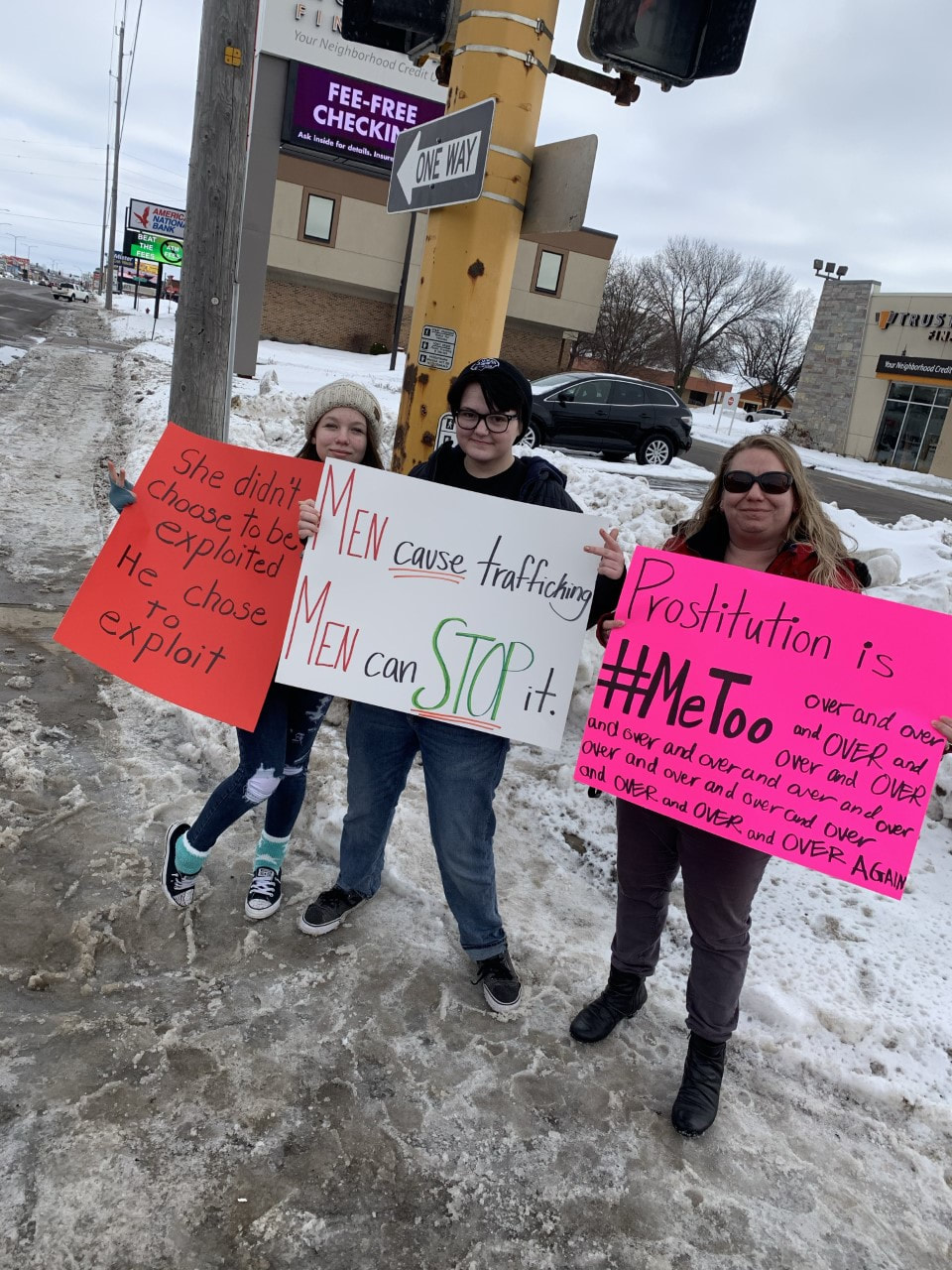
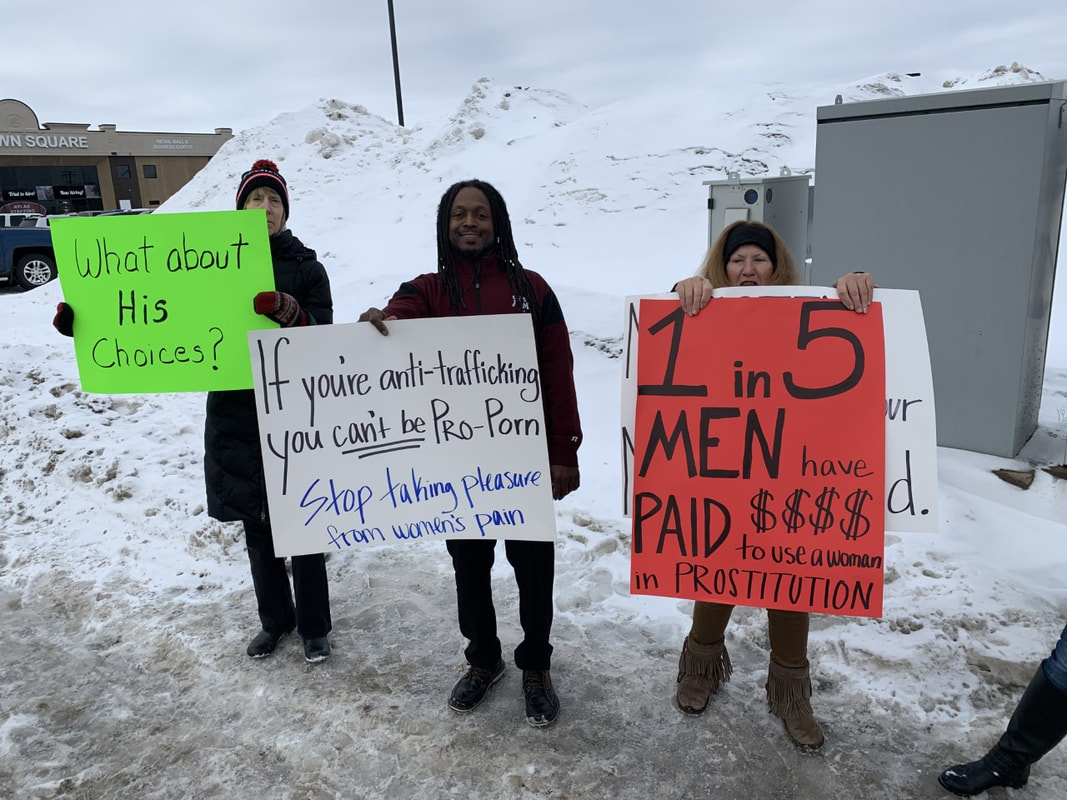
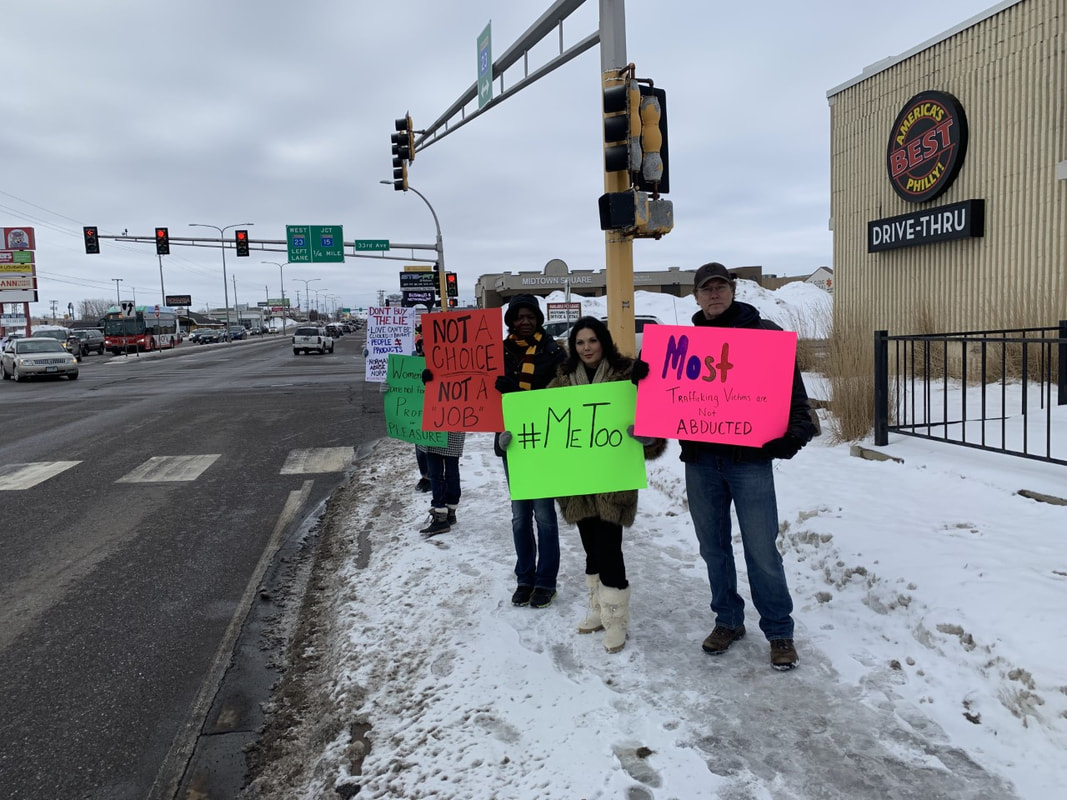
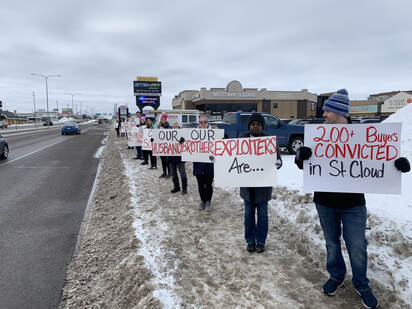
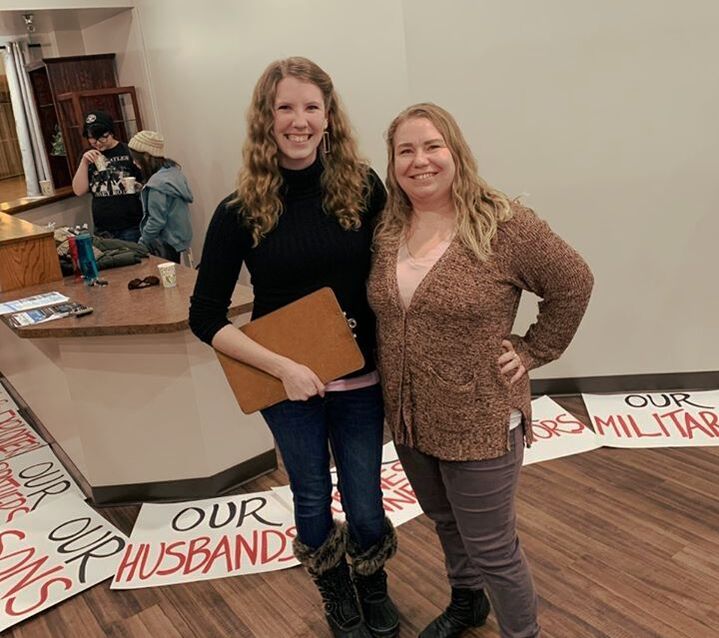
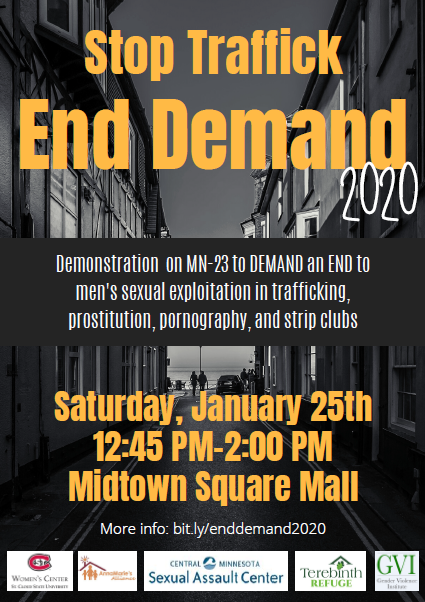
 RSS Feed
RSS Feed